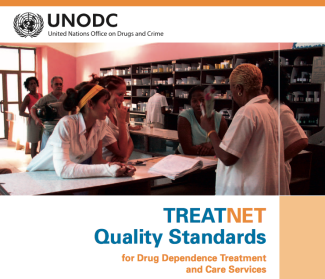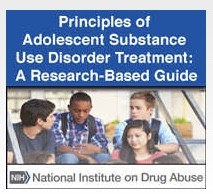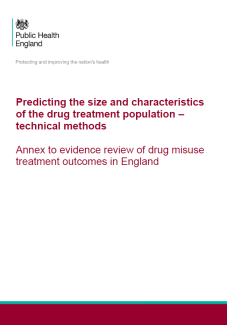Applying interventions designed to reduce and manage the symptoms of substance use disorders.
Treatment
Webinar: Alcohol Interventions for Males on Remand in Prison
Alcohol use and offending behaviour often go together. Data from the Alcohol and Crime Commission indicates that 70% of the prison population in the UK, who are mostly young males, reported that they had been drinking when they committed their offence.
Webinar: Complex Connections: Intimate Partner Violence and Women’s Substance Abuse and Recovery
This event will take place Tuesday, August 1, 2:00–3:30 p.m. EST.

Review: Pharmacogenetics of Alcoholism Treatment: Implications of Ethnic Diversity
Abstract Background and Objectives Pharmacogenetic studies of alcohol use disorder (AUD) have suggested that the efficacy of treatments for AUD is, in part, influenced by the genetic background of an individual. Since the frequency of...
The Role of Science in Addressing the Opioid Crisis
Opioid misuse and addiction is an ongoing and rapidly evolving public health crisis, requiring innovative scientific solutions. In response, and because no existing medication is ideal for every patient, the National Institutes of Health...
Using Behavioral Triage in Court-Supervised Treatment of DUI Offenders
San Joaquin county in California has pointed the way forward to a system which conserves treatment resources yet achieves greater reductions in drink/drug-driving incidents. The first evaluation of systematically escalating offenders to...
Alcohol Treatment Matrix Row 5: Safeguarding the Community
Time to consolidate the lessons of the course’s last five instalments about treatment intended to safeguard the community, the final row of the Alcohol Treatment Matrix. A common theme is the contradiction between treatment centred on the...
Quality Standards for Drug Dependence Treatment
The TREATNET Quality Standards are based on the United Nations Office on Drugs and Crime (UNODC) Principles of Drug Dependence Treatment and Care. They represent a set of evidence-based standards for drug-dependence treatment. Click here to...

Principles of Adolescent Substance Use Disorder Treatment: A Research-Based Guide
The National Institute on Drug Abuse (NIDA) presents its Principles of Adolescent Drug Addiction Treatment. The document focuses exclusively on the realities of substance use among youth (12 to 17 years). Illegal substances, prescription...

Predicting the Size and Characteristics of the Drug Treatment Population – Technical Methods
Aim and data specification This analysis was based on monthly data from the National Drug Treatment Monitoring System (NDTMS) from December 2005 to November 2016. NDTMS is taken to be a comprehensive description of drug treatment provision...

Family Therapy for Adolescents with Behavioural Problems
Multidimensional family therapy addresses: Mental health, substance use and other behavioural issues affecting young people The parents’ childrearing skills/personal functioning Parent-child communication/relationship Family members' social...